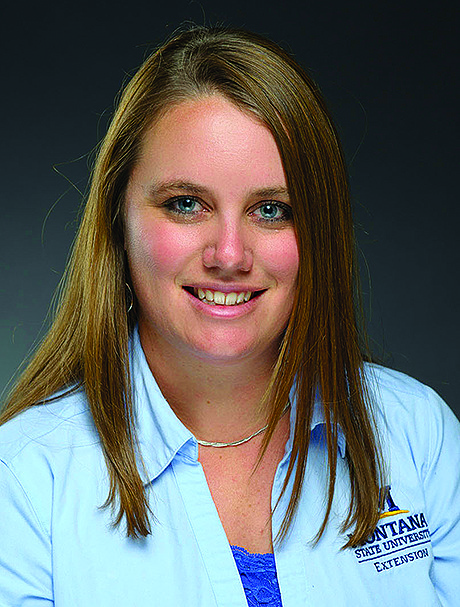Local Meat
 | Author:
Allison Kosto, MSU Broadwater County Extension Agent
MSU Broadwater County Extension Agent |
Local Meat Allison Kosto, MSU Broadwater County Extension Agent Among the myriad of changes that were induced by COVID-19 was an increased interest in local meat. There were a few factors influencing this, including a shortage of meat in grocery stores, higher costs for customers and a push to support struggling local businesses.
Another factor is an increased interest from the consumer to know where their food comes from. There is a lot of misinformation and, sometimes, even a level of distrust within the agriculture industry. This stems from the fact that many people do not have an in-depth understanding of how their food is raised or grown. Many consumers desire a product that has been born, raised and processed in Montana that matches the standards of care they are seeking.
Local meat can be purchased directly from producers, local grocery stores, restaurants, shops and farmers’ markets. How and where local meat can be sold comes down to how it is processed. There are four ways that meat can be processed in Montana.
Home Slaughter and Processing; although once the standard, this is less common now. The producer slaughters the animal on the farm or ranch and processes it in their own kitchen or home facility. Meat from this type of processing cannot be sold. It can be gifted or shared, but not sold.
Custom Exempt Processing; this is the most common type of processing in Montana. Animals are slaughtered onsite, or with a mobile slaughter unit, and processed at the facility based on the client’s instructions. Facilities must be licensed and inspected by the state of Montana at least twice a year. However, because the actual slaughter process is not inspected, meat from this type of facility cannot be sold either.
With this option, a customer purchases a live animal (often sold as a whole, half or quarter) that is delivered to the processor for the buyer. At that point, the buyer is responsible for providing cutting instructions to the processor and paying for the slaughter and processing costs. The buyer can use the meat for their own personal use but cannot sell it. All meat is labeled as “not for sale".
State-Inspected Processing; to be a state-inspected facility, the processor must have state inspectors present at the facility on slaughter days. The inspector looks at both the live animal and the carcass. He/she also monitors sanitation, animal handling practices, animal holding pens and collects tissue samples to look for drug residue, pathogen and microbiological contamination.
In this option, livestock owners have the ability to sell directly to consumers, grocery stores, restaurants, farmers’ markets, schools, hospitals, etc. The downside is that meat can only be sold in the state of Montana. They are not allowed to sell across state lines. However, a consumer could buy meat in Montana and transport it out of state.
Federally Inspected Processing; the inspection process is very similar to state-inspected facilities except the inspection is done by the United States Department of Food Safety Inspection Service. Additionally, all federally inspected meat can be sold across state lines.
County government also has a level of oversight in the meat industry by establishing rules and regulations on storing, processing and sale of meat goods. This often takes place on the retail side and is overseen by the county sanitarian. There is often a licensing process for restaurants, butcher shops, including those in grocery stores, and meat shops in addition to annual inspections by the sanitarian.
Who thought it could be so complicated?! Rather than getting focused on the rules and regulations, start at the ground level by getting to know a local farmer or rancher. They are likely familiar with the rules and know how their livestock and meat products can be marketed. And if they are not in the meat or livestock business, they probably know someone who is. Buying local meat is a wonderful way to directly support local agriculture and local businesses. For more information, contact MSU Extension in Broadwater County at 406-266-9242 or allison.kosto@montana.edu.